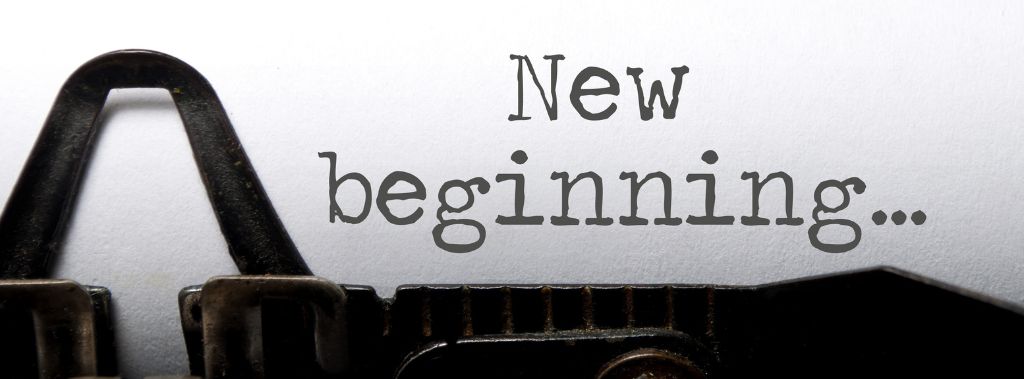Our Time of New Beginnings | Rosh Hashanah
Are you ready to shift into a new season, go through the gates, and move into new opportunities? Discover how God uses Rosh Hashanah to shift us into new seasons and new beginnings, bringing us new opportunities. This is a time for our trumpet blast!
The word for this Rosh Hashanah is from Isaiah 60:10…
- “Pass through, pass through the gates, and go from old to new. Prepare a new path for the people. Build! Build up a highway for them to come to me! Remove every hindrance and unfurl a banner for the nations!” (TPT)
Aligning with Biblical Covenant
Covenant is an important biblical principle, particularly covenant with God. When God created Adam and Eve, a covenant bond was formed, strengthening the relationship between God and man. This covenant granted authority to man and came from a place of God’s love. This is why the covenant favored man, with God giving greatly while man, almost exclusively, took.
God gave one stipulation in the Garden, and man tossed it, our covenant, and even our relationship with Him, aside. We gave away God’s trust, authority over the animals, and more, all for a taste of lies, hate, and everything contrary to God. Yet, God still loved us, desiring to one day enter into covenant relationship again.
After the Garden, a few people, such as Noah, were granted a taste of the God-given covenant. However, they were limited in comparison to the first. God was not stopping there. God chose Abram—soon called Abraham—and through the covenants made between them, the first roots of our faith were formed. The preparation for our redemption through Jesus is firmly set in place.
Abraham was not perfect, but he had an open heart and chose to follow God willingly. Abraham desired covenant with God; to receive a blessing, yes, but most importantly, relationship. Abraham was a friend of God, blessed with covenant access to our Creator!
This was only the start, however. Abraham’s relationship with God set things in motion because, just as with Noah, it held some of the first covenant promises since the Garden. Yet, it was more than a covenant with one man. It served as a covenant foundation for God’s laws, commandments, and lessons to come. It spanned all the way to our Messiah, Yeshua!
Covenants continue to play an important role. They serve as new beginnings and lay the foundation for God’s future in our lives. Yet, renewed and new covenants often come at special moeds—appointed times. One such moed involves the covenant of Rosh Hashanah—found in Leviticus 23 and Numbers 10 and 29—where we enter the new year of God’s calendar and all the new beginnings God has set aside for us!

Rosh Hashanah, Our Time of New Beginnings
Some people think of Rosh Hashanah as simply the ‘Jewish New Year,’ but it is more. Rosh Hashanah reminds us of the preparation needed to succeed in the year ahead and to transition, to move through the gates, and into all God has for us. This focus on God is key because God is at the heart of all biblically founded holidays. Rosh Hashanah also serves as a call to repent and remember, cleansing ourselves to enter the new season in step with God.
Unlike the secular New Year of the Gregorian calendar, Rosh Hashanah is not filled with empty promises or covenants. It serves as preparation for a deeper relationship with God, as well as a restoration of covenants needed to answer God’s call for our lives.
It is because of this focus that Rosh Hashanah is sometimes referred to as the ‘Head of the Year.’ Because the head is where the mind, eyes, ears, and mouth are located. It is where many decisions are made, but it is also a place where we are filled—with good or bad things depending on what is allowed in. It directs where we go, like the yoke spoken of in Matthew 11.
If we put on the yoke of Jesus at Rosh Hashanah—the start of the season—our heads can only be led into those places God desires. This is because the yoke turns the head and thereby directs where our feet go and what we see. By wearing God’s yoke, following His narrow path becomes easy. However, if we wear yokes not of Him, it becomes easy to lose our way or fail to fit down the narrow path…
Only God’s yoke is light enough for us to answer our call. Only God’s yoke points us in directions that bless!“For My yoke is easy and My burden is light.”—Matthew 11:30
Our Trumpet Blast
Biblically based holidays, such as Rosh Hashanah, typically include symbols—modern and ancient—rife with meaning. For Rosh Hashanah, these include:
- Honey—telling of the desire for a sweet year
- Apples—reminding us of God’s healing, as well as the desire for a sweet year
- Pomegranates—with a short season coinciding with Rosh Hashanah, pomegranates are a symbol of newness; the large number of seeds also represents prosperity
- Challah—crafted in a circle, it symbolizes the circularity of God’s calendar year; raisins are often added to further symbolize the desire for a sweet year
- Shofars—used to announce the new year, shofars tie the day to God, because God told man to use them in many significant moments; it also joins to God because of the sound itself, and the innocent blood shed to create it
- Torah—God’s Word is an important symbol in biblical holidays because it reminds us of God and His commands
Of these, the most commonly found today are apples and honey. However, the most crucial in biblical terms is, in many ways, the shofar—also known as a ram’s horn or trumpet. Throughout history, the shofar has served as an important symbol of Rosh Hashanah, the Jewish people, and God’s Word. It is also commonly depicted in the archaeological record, confirming the truth of God’s Word.
Yet, why is it important today? Especially for Gentile Believers?
Throughout biblical times, we see in God’s Word that the shofar acted as a signal. Sometimes announcing war, but perhaps more often, as with Rosh Hashanah, heralding in God’s presence and joy!
It is traditionally believed that the moment God breathed life into man, the soul was brought into being. As a result, it is also believed that when the breath of man sounds the shofar, the cry of the moment of mankind’s creation is returned to God; acting as a reminder of God’s breath and presence within us, but also the joy of creation!
Another traditional belief is that through the sound of the shofar, the Word of the Lord is decreed into the atmosphere. In part, this relates to the sounds of the shofar being so varied that all the sounds of God’s Words flow through the shofar. But it is also tied to the shedding of innocent blood required to craft the shofar because innocent blood holds power, as with the blood on the doorposts in Egypt, or the most powerful of all, the Blood of Jesus.
This cry sounding from the shofar still resonates within the soul today for both Jews and Gentiles who hear it. It can feel as if the soul is echoing, ringing out the song of creation–ringing out praises to our God through His breath in us!
Still, what does the Word say?
- “‘And seven priests shall bear seven trumpets of rams’ horns before the ark. But the seventh day you shall march around the city seven times, and the priests shall blow the trumpets. It shall come to pass, when they make a long blast with the ram’s horn, and when you hear the sound of the trumpet, that all the people shall shout with a great shout; then the wall of the city will fall down flat. And the people shall go up every man straight before him.’”.”—Joshua 6:4-5
Depending on the version, words like shofar, trumpet, and horn are found hundreds of times in God’s Word. Yes, not all specifically relate to shofars, but a large number do. God commanded the shofar to be blown on many occasions, and the reasons behind them varied. God used them as a tool to bring down the walls of Jericho, He used them to ring in the Sabbath/Shabbat rest, to herald in certain spiritually important seasons and moments. Because of these moments, the shofar is tied to God forever, to innocence, and even to our creation. It may seem like an Old Testament tool, but God is still using it today!
The shofar is a tool for heralding in God’s Spirit, announcing war against the enemy, remembering God and His gift of creation, and even repentance. No matter its use, the sound penetrates the soul and turns our heart back to God!
- “The sons of Aaron, the priests, shall blow the trumpets; and the trumpets shall be for you a perpetual statute throughout your generations.”—Numbers 10:8 (AMP)
The sounding of the shofar to announce Rosh Hashanah—and other High Holy Days or Sabbaths—acts as a cry from man to God. It is a holy sound. A sound of heaven. But it requires the life of an innocent ram—like the ram God gave Abraham in place of Isaac. A sacrifice of innocent blood to bring redemption and holiness…
Despite many Believers never hearing a shofar sound or knowing of Rosh Hashanah, both hold unique importance for new beginnings. Yes, God can and does change things in our lives throughout the year, and not everyone has access to a shofar. However, they still shift things. Nothing in God’s Word is without purpose. Nothing He asks us to do fails to hold meaning.
Just as God engages in covenants, developing relationships with man throughout history, He wants that still! He desires a deeper relationship with us! He is ready for us to move into our new season with Him.
Rosh Hashanah is our moed. A unique time to change in and through Him; full of blessings and opportunities for change!
Let us not miss this time of our visitation. Let us not reject this opportunity to change and step into all God has for us!

